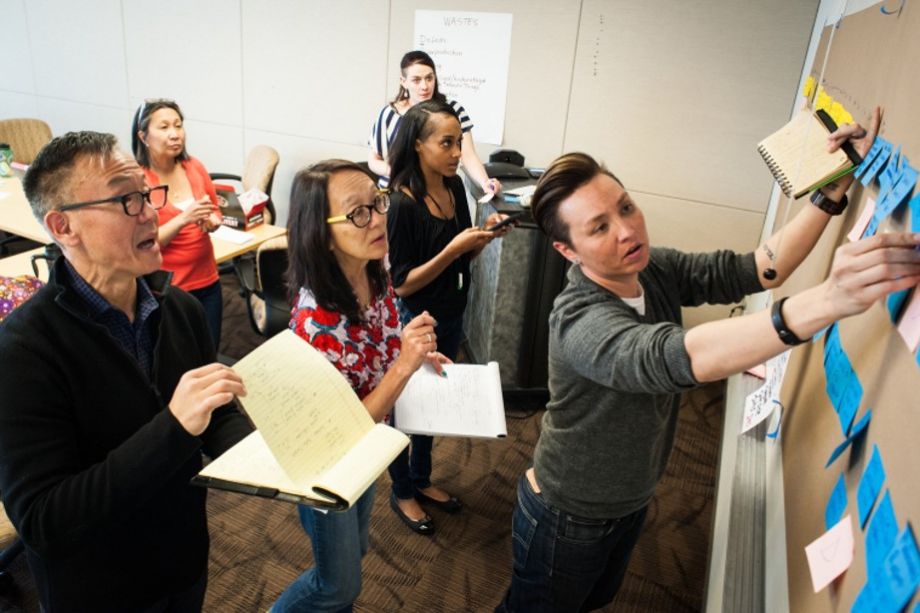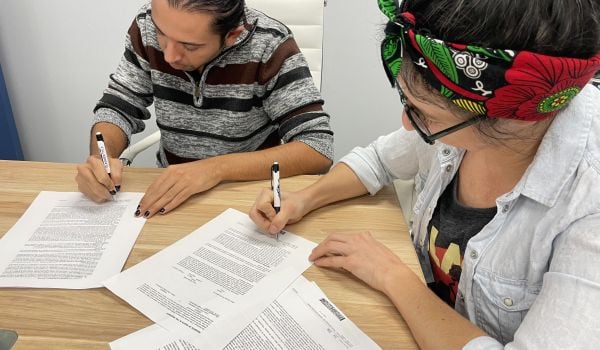When the pandemic struck last year, the City of Denver unleashed a secret weapon to help residents live their lives as best as possible: the Peak Academy.
The 10-person team, which has been tasked with empowering frontline municipal workers to solve problems and innovate through their own initiative since 2012, began to collaborate with staff across all city departments – and improvements came thick and fast.
Among the many efforts, the city created a public map where businesses highlighted that they were still open, listing services and operating hours, in a boost for local enterprise. The IT team at the county courts began a digital transition, allowing court staff to work from home and defendants to join court by phone or video call, cutting physical contact. And for the November 2020 elections, the city introduced curbside ballot requests – through which voters could request a replacement mail ballot and schedule a pick-up at 19 locations – letting nearly 2,000 citizens vote more safely.
“We are trying to empower frontline employees to make innovations,” says Megan Williams, director of Denver Peak Academy, who herself came through its training course in 2014. “Executive-level folks might approach a problem and say: ‘Do this to fix it’. But they may never have dealt with the problem themselves, or not for a long time. Those working day-to-day on these problems know best how to fix them.”
Denver’s Peak Academy wants to shift local government away from the traditional, top-down approach of management. And the results speak for themselves. The efforts have saved the city at least $48 million, according to Williams, with each of the 4,000 innovations saving $14,000 on average. But that only includes official projects, and not the daily, incremental improvements that the academy aims to encourage – therefore, the real figure is likely to be far higher.
The Peak Academy has two levels of training for staff: “Green belt,” which involves less than a day of training, and “black belt,” which until recently lasted for a week, but has now been shortened to 3.5 days with a half day follow-up later on. Training is free for city staff, but external companies can also pay for staff training (more than 200 other cities and nonprofits have done so). Each participant must come with a project to develop and by the end they receive Peak Academy certification.
“You’d be amazed, a lot of people don’t know what the baseline performance is,” adds Williams. “With the tools they learn in class, they can calculate current performance, implement the change and track the change with key performance indicators.”
Denver now has a glittering history of successful innovations. The Office of Child Affairs, for example, wanted to increase equity in its grant-making process – and by reducing the application form from 26 pages to 12, the number of applicants rose by a third. The Street Sweeping team wanted to reduce the volume of water it was using to wash its trucks (5,000 gallons of water per wash), and optimizing the technique has saved more than 25,785,000 gallons of water and over 668 hours of staff time.
It’s now collaborating with Denver Animal Shelter to reduce the time animals spend there, the City Attorney’s Office to deal with wage theft of under $2000, and environment-focused staff to optimize the impact of a recently-introduced fee for single-use plastic bags. Going forward, Williams says the academy will focus on citywide efforts that affect larger numbers of people, such as affordable housing.
However, Denver’s approach, a variation on an approach focused on continuous improvement known more broadly as “lean government”, is not so much of a secret these days. In recent years the mindset has spread across the country – from California to Florida to Maryland – and even officials from Canada and Ukraine have come to learn from Denver. (Next City covered Chattanooga’s adoption of the approach in 2019.)
Michael Baskin, chief innovation officer in Montgomery County, MD, launched the county’s Innovation Accelerator Courses in 2019, bringing together “co-work groups” of local government workers through “a structured problem-solving process to make small improvements a reality”. The courses are aimed at making staff “more collaborative, inventive, and helpful,” he says, through human-centered design.
“The idea that innovation must come from a single team is absurd,” says Baskin. “It’s happening everywhere, every day in local government. We want to find those bright spots and help them spread.”
Often, these innovations are simple yet remarkably effective: digitizing forms has meant workers no longer have to enter data by hand, reducing errors and saving a lot of time. It also means that working moms – who Baskin says in the past might have to take two buses to get an application form for financial support, which could then be rejected if a part was incorrectly filled in – have much easier lives.
“Our mantra is: ‘No new budget, no new people, no new technology’,” adds Baskin, whose courses have always been fully-booked. “Rather than hire more people for the accelerator, we are looking for staff to take on these responsibilities. It’s helping employees to recognize their own powers to help change the community.”
Josh Sorin, government innovation program director at the nonprofit Center for Public Impact, believes that lean government could play a huge role in the future.
“I have a sense it’s not that widespread yet,” he says. “But I think it should be. It’s democratizing and decentralizing innovation. It recognizes that innovation is collective and that small changes can make a big difference.”
Sorin argues that a key consequence of this form of governance is the job satisfaction it gives to employees. “In my experience, when a government process is working well, it’s not just because they have the perfect plan or operating procedures,” he says. “It’s because the people on the frontline are feeling empowered.”
However, the process isn’t always smooth at the beginning, according to Denver’s Williams, and only through gradual successes are departments won over by the lean government approach. “As those successes build, we gain trust from it,” she says. “We’re at a lucky point in Peak’s history. We’ve created a reputation as a fixer. Departments do come to us and ask for help. But that took a lot of time to earn.”
Sorin agrees that breaking age-old institutional hierarchy is a significant hurdle. “Bureaucracy is often aimed at maintaining the status quo,” he says. “The deck is stacked against sharing power in the truest sense.”
That challenge has become even greater over the past year as the pandemic has put more pressure on staff resources. But Williams believes that makes a shift to the “lean government” model more important than ever.
“It’s a strained workforce,” she says. “In 2022, will people make the time for training? We want to make it as accessible as possible even when you’re pressed for time. Because it will save everyone time and money in the long run.”
Peter Yeung is a Contributing Editor at Reasons to be Cheerful and has written for publications including the Guardian, the LA Times and the BBC.















